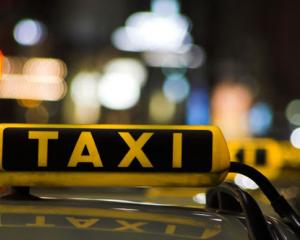
Most petrol stations in Dunedin, Oamaru, Balclutha, Alexandra and Invercargill were charging $2.449 for 91 unleaded yesterday.
Wanaka's petrol was most expensive in the country, with $2.599 at its Caltex station and Queenstown was close behind with $2.519 from its BP.
Advocates of electric vehicles, buses and bikes say the financial strain is building interest in other commuting methods.
There have been 174 electric vehicle registrations in Otago so far this year, bringing the total to 568.
In Southland, 24 registrations have pushed the total to 70.
Otago Electric Vehicle Society co-founder Alan Wilden said petrol prices "definitely" influenced this.
"When I'm spending between two and three cents a kilometre and petrol is that price, I think it does have an impact."
Those who did not charge at home "queue up for hours on end" at the city's rapid chargers.
Gilmour Automotive & EV Cars owner Alastair Gilmour said it was probably too early to know how petrol prices would affect the electric vehicle market.
He was getting a "lot of inquiries", but many people were still not willing to pay more than $12,000 for an electric vehicle.
"You don't get much of an electric car for that."
The vehicles were selling, although exchange rates and other factors meant they became more expensive in the past year.
At $15,000 for cheaper second-hand vehicles, they were still good value, less than half that of new vehicles, he said.
Bus Users Support Group Otepoti Dunedin co-president Alex King said he believed long-term, high petrol prices would encourage people to use buses.
Dunedin's July patronage was 11% up on the same period last year, while the increase was 167% for Queenstown.
However, these increases are largely due to revamps of both public transport services.
In the short term, motorists would continue to use cars, but over a long period he believed attitudes would change.
Spokes Dunedin chairman Jon Dean said fuel costs had pushed him to cycle more.
"I'm now biking over Three Mile Hill to Mosgiel for work because of petrol prices. It's a killer on the way back."
He expected more cyclists on the main thoroughfares if prices stayed high over the next couple of months.
The fuel industry has said causes of increasing fuel prices are complicated but include product cost rising, changes in interest rates and a 3.5c-per-litre fuel tax introduced at the weekend.
Comments
Petrol/diesel are taxed at over 50% once you add excise tax and GST to the mix. Obvious gouging by the government. Also, why do we in Otago have to pay for Auckland's road, rail and tunnels? Let Aucklanders pay for their own infrastructure. Why are our roads deficient because Wellington says so? Independence anyone?











